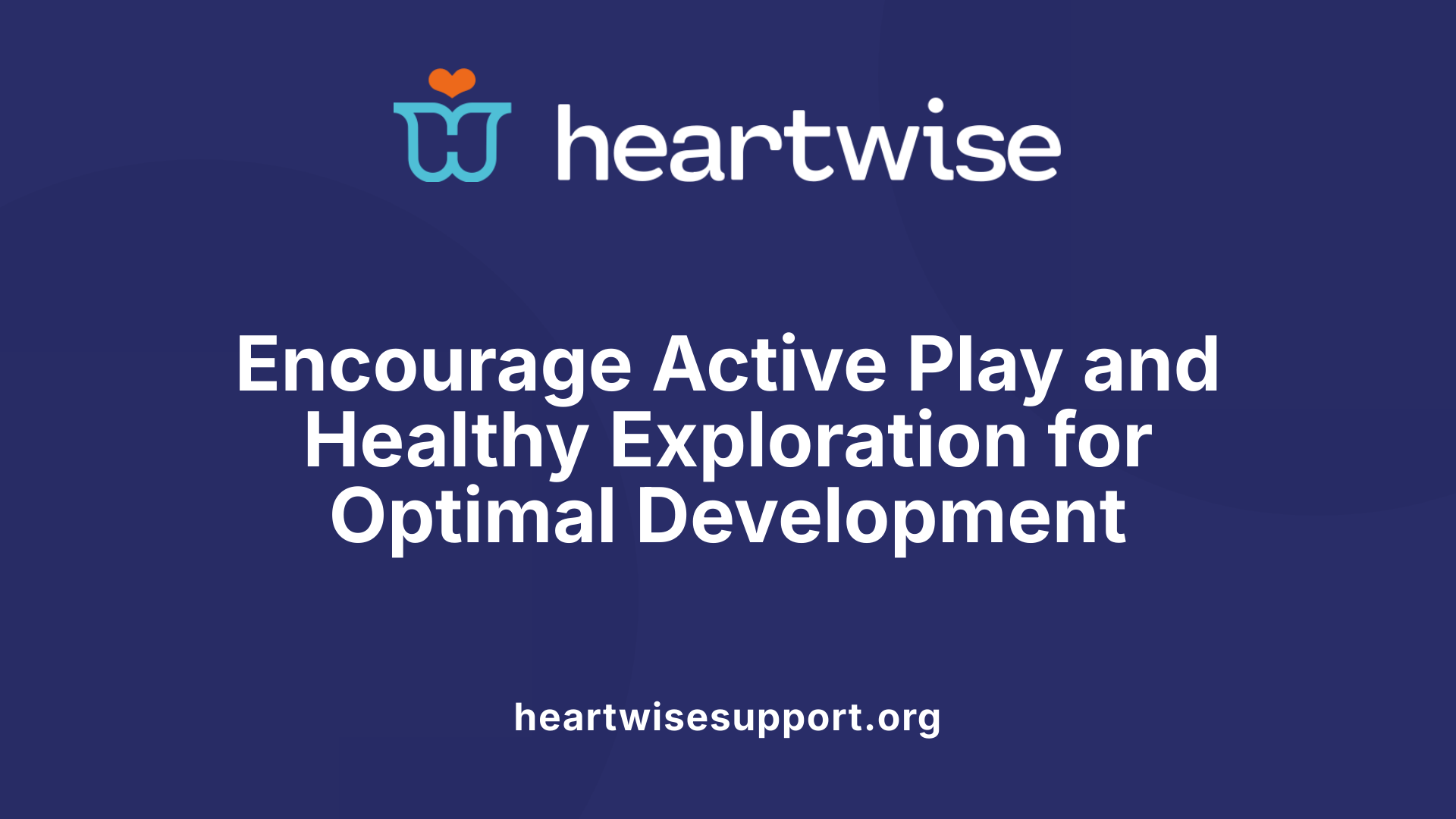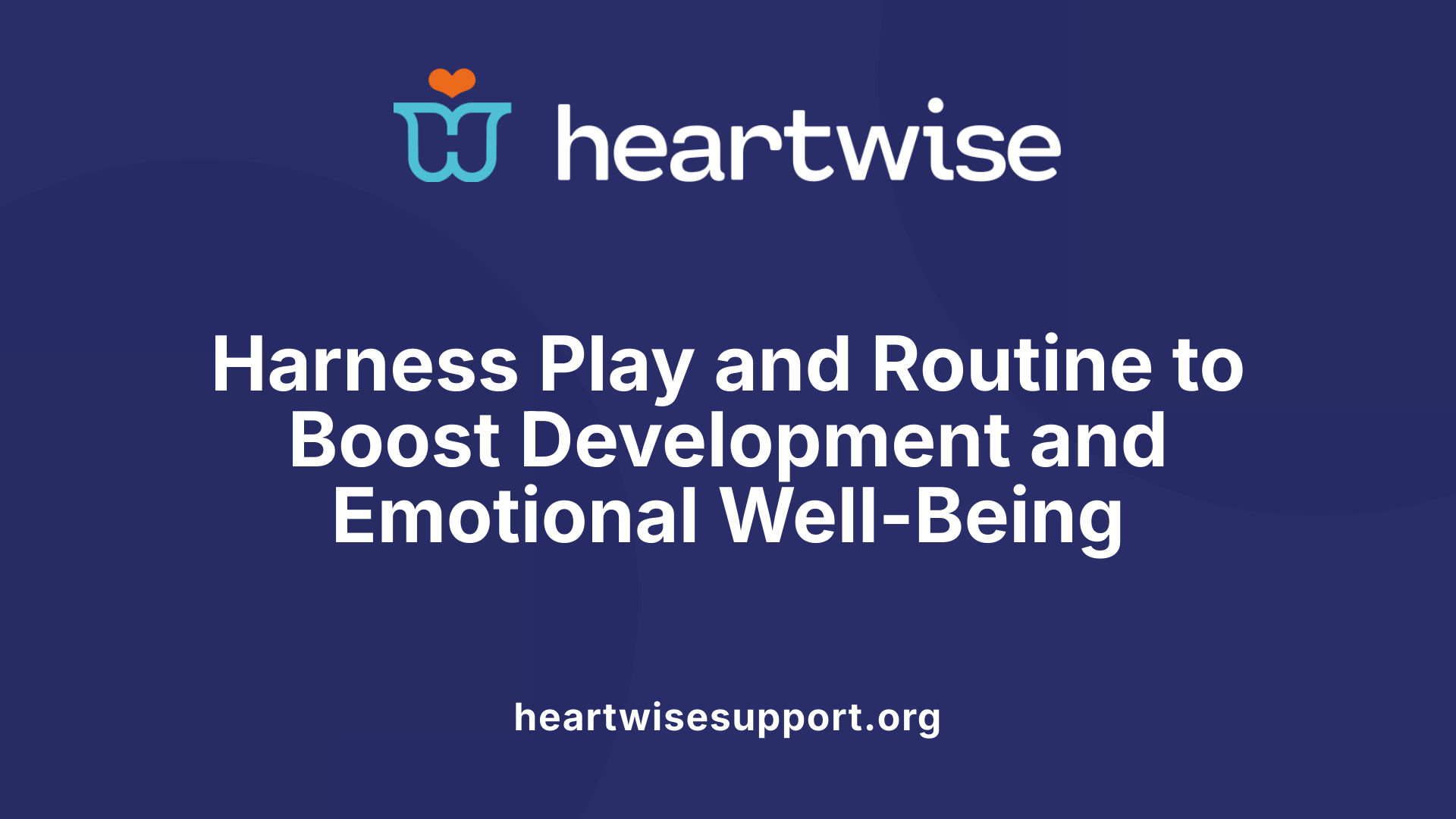Understanding Developmental Milestones and Mental Health in Early Childhood (Ages 3-5)
The ages of 3 to 5 are a vital period for children's physical, cognitive, emotional, and social development. Recognizing developmental milestones and the influence of mental health during these formative years provides valuable insight for caregivers, educators, and health professionals. This article explores the key aspects of child development in this age group, the importance of early intervention, and practical strategies to support fostering resilience, emotional regulation, and social competence, ensuring healthy growth and a positive mental outlook for young children.
Physical Development and Motor Skills Progression
Children between ages 3 and 5 undergo remarkable improvements in their gross motor skills, which are essential for their overall physical development. During this period, preschoolers learn to run more confidently, jump, hop on one foot, and climb stairs with alternating feet. They also develop coordination skills that allow them to catch a bouncing ball, kick a ball forward, and even climb playground equipment with increased agility.
By the age of 3, children can hop and stand on one foot for about 5 seconds, demonstrating improved balance and muscle control. They begin to pedal tricycles and can navigate stairs independently, often going both up and down without support. Fine motor skills also advance, as children start to draw simple shapes like squares and circles, copy basic patterns, and handle child-safe scissors to cut paper.
At age 4, children can perform more complex movements such as hopping on one foot more steadily, running more smoothly, and climbing with increased confidence. They also start to use utensils independently, write some letters, and draw more detailed pictures of people with distinguishable parts.
These physical milestones are supported by an increasing ability to perform everyday activities that foster independence and confidence. Understanding these developments helps caregivers and parents encourage safe, engaging activities like active play, arts and crafts, and outdoor exploration, which are crucial for healthy growth.
| Age | Motor Skill Milestones | Additional Details |
|---|---|---|
| 3 | Hop on one foot, climb stairs, kick and catch a ball | Can pedal a tricycle, copy simple shapes |
| 4 | Run more easily, climb with confidence, use utensils, draw detailed pictures | Write individual letters, perform complex movements |
| 5 | Climb stairs with alternating feet, jump, skip, catch a ball, improve coordination | Show readiness for more structured physical activities |
Supporting physical development involves safe environments, age-appropriate play equipment, and encouragement to explore movement naturally. These activities promote strength, coordination, and overall health, setting a strong foundation for lifelong physical activity.
Developmental Milestones—Cognitive, Language, and Social-Emotional Growth
Children between the ages of 3 and 5 experience remarkable growth across multiple areas, with cognitive development playing a central role. During this stage, children often engage in magical thinking, believing what they see and hear over logical reasoning, and respond to questions like 'why' with imaginative answers, revealing their developing ability to use imagination. They also begin to understand opposites, size, sequence, and concepts like volume and time, which lay the groundwork for logical thinking.
Cognitive milestones are closely linked with emotional and social development. For example, many children recognize rhymes, recognize the alphabet, count objects up to 20, and understand basic relationships between numbers and items. Their attention span improves, allowing them to follow simple instructions, recall stories, and imitate shapes like circles and squares.
Supportive environments that include playful learning activities promote these skills. Engaging children in sorting objects by color or shape, reading simple books, and encouraging pretend play helps develop their understanding of the world and their mental resilience. Such activities foster curiosity, problem-solving skills, and the ability to think independently.
Mental health profoundly influences early learning and emotional regulation. Positive mental health supports children's capacity to process experiences, build relationships, and explore their surroundings confidently. Conversely, emotional disturbances or developmental delays can hinder learning and social interaction.
Early intervention is vital; identifying and supporting children with developmental delays or emotional challenges can significantly improve long-term outcomes. Utilizing resources like CDC developmental checklists or engaging with early childhood assessment tools help caregivers and professionals monitor progress and address issues promptly.
Parents and caregivers play a crucial role in nurturing healthy growth. Providing consistent routines, engaging in quality conversations, encouraging explorative play, and validating children’s feelings help foster resilience and emotional well-being. Recognizing signs of typical development, such as expanding vocabulary and social play, versus delays, like speech or emotional difficulties, enables timely support.
Key stages of early childhood development—including language acquisition, emotional understanding, and social skills—are interconnected. Successful progress in these areas promotes positive mental health, resilience, and overall well-being for preschoolers, shaping their readiness for future learning and life challenges.
Understanding Emotional and Social Development in Preschoolers
What are the typical developmental milestones in children aged 3-5 years, including physical, cognitive, language, social, and emotional development?
Children between ages 3 and 5 experience remarkable growth across all domains. Physically, they gain better coordination, can hop on one foot, climb stairs, and run with agility. They develop fine motor skills like drawing, cutting, and using utensils. Cognitively, preschoolers understand opposites, follow multi-step instructions, and engage in imaginative play. Language skills expand rapidly, with vocabulary reaching around 10,000 words by age 5, and sentences becoming longer and more complex.
Socially and emotionally, children start forming friendships, sharing toys, and taking turns. They recognize and express a range of feelings, such as pride, fear, and empathy, which enhances their capacity for emotional regulation. This period is crucial for building the foundation of healthy relationships and self-awareness.
How does mental health influence child development during early childhood (ages 3-5)?
Mental health plays a vital role in determining how children interpret their environment, cope with stress, and relate to others. A positive mental state supports social competence, emotional resilience, and the ability to manage feelings effectively. Conversely, issues like anxiety, withdrawal, or aggression can hinder social interactions and learning. Early mental health influences long-term outcomes, including self-esteem, behavior, and the capacity to form secure attachments.
Why is early intervention important for supporting healthy development in children aged 3-5?
Identifying and addressing developmental or emotional delays early allows for timely support and intervention. This proactive approach helps children develop necessary social and emotional skills, reducing potential lifelong challenges. Early intervention can improve behavioral outcomes, strengthen emotional regulation, and promote positive relationships, setting children on a path toward healthy development and school readiness.
What resources and best practices are available to promote mental well-being and healthy development in children aged 3-5?
Several tools and activities support mental health in preschoolers. Engaging in pretend play and role-playing helps children understand emotions and social roles. Reading stories about feelings encourages emotional vocabulary. Community programs, parenting guides, and educational resources offer strategies to foster resilience and emotional intelligence. Creating consistent routines, modeling positive behavior, and encouraging social interaction are practical practices that nurture mental well-being.
How can parents and caregivers identify early signs of developmental or mental health concerns in preschool children?
Parents should observe behavioral cues such as withdrawal from social activities, persistent fears, aggression, or difficulty managing emotions. Challenges in sharing, excessive tantrums, or regression in skills may also indicate underlying issues. Noticing these signs early and consulting pediatric or mental health professionals can lead to timely support, improving outcomes.
What are some key stages of early childhood development and their impact on mental health outcomes?
Critical stages include developing emotional regulation, learning social norms, and building secure attachments. These experiences influence resilience, self-esteem, and capacity for empathy. Successful navigation of these milestones fosters mental health stability, helping children handle future stressors and build positive relationships as they grow.
This early development phase, therefore, is essential in shaping children's mental health trajectories, highlighting the importance of supportive environments and early guidance.
Supporting Physical and Sensory Development Safely and Effectively
 Children between ages 3 and 5 go through important milestones in physical, cognitive, emotional, and social development. During this period, they improve gross motor skills such as hopping on one foot, running, climbing stairs, and manipulating objects with increasing precision. Fine motor skills develop too, enabling kids to draw shapes, cut with child-safe scissors, and use utensils independently, fostering their sense of autonomy.
Children between ages 3 and 5 go through important milestones in physical, cognitive, emotional, and social development. During this period, they improve gross motor skills such as hopping on one foot, running, climbing stairs, and manipulating objects with increasing precision. Fine motor skills develop too, enabling kids to draw shapes, cut with child-safe scissors, and use utensils independently, fostering their sense of autonomy.
Mental health plays a crucial role in a child's overall development in early childhood. A positive emotional state can motivate children to engage in physical activities and social interactions, which are essential for motor skill enhancement and social-emotional learning. Supportive caregiving, a safe environment, and appropriate routines help bolster mental well-being, influencing physical growth and development.
Early intervention is vital for supporting healthy development. Identifying delays in motor skills or behavioral issues early allows for timely support, preventing long-term difficulties. Regular monitoring and assessments ensure children are on track, and prompt action can improve outcomes by fostering safe growth and emotional stability.
Parents and caregivers can promote mental and physical health by providing safe play areas, encouraging active play, and ensuring nutritious meals. Using age-appropriate toys and activities helps develop coordination and strength. Community resources, pediatric advice, and structured routines contribute significantly to the child’s well-being.
Caregiving strategies such as giving children opportunities to explore movement safely, offering praise, and maintaining consistent routines support emotional security. This foundation helps children develop confidence and resilience, essential for their mental health and social success.
Watch for signs of developmental delays, which include difficulty hopping, jumping, balancing, or poor coordination. Early assessment and intervention can help address these concerns, ensuring children achieve their full potential.
Understanding the stages of early childhood development highlights the importance of physical milestones in building social confidence and independence. By supporting these growth markers through safe practices, caregivers lay the groundwork for children’s overall health and positivity in their developmental journey.
The Role of Play and Routine in Supporting Development and Mental Health
 Play and routines are vital components of early childhood development, especially for children aged 3 to 5 years. During these years, children reach important milestones across physical, cognitive, language, social, and emotional domains.
Play and routines are vital components of early childhood development, especially for children aged 3 to 5 years. During these years, children reach important milestones across physical, cognitive, language, social, and emotional domains.
Typically, children in this age group enjoy engaging in pretend and cooperative play, which helps enhance their imagination and social skills. They develop language skills by telling stories, asking questions like 'why' or 'what,' and responding to conversations with longer sentences. Motor skills also improve—they can hop on one foot, climb stairs, throw and catch balls, and use scissors and other tools with increasing precision.
Socially, children learn rules such as sharing and taking turns, which are essential for friendship and cooperation. Emotionally, they begin to understand their feelings, differentiate between emotions like happiness and sadness, and develop empathy for others. These skills are supported effectively through daily routines that create a sense of security and predictability.
Mental health plays a crucial role during these formative years. When children have stable routines and positive experiences, they are more likely to feel safe, which promotes emotional resilience. Play is especially beneficial; it allows children to explore their environment, express feelings, and develop social bonds.
Early intervention and supportive practices are imperative if delays in play, social interaction, or emotional regulation are observed. Signs such as reluctance to engage in activities, difficulty sharing, or limited pretend play can be indicators of developmental concerns requiring professional evaluation.
Parents and caregivers can foster healthy development by involving children in simple chores, storytelling sessions, art activities, and group games. Establishing consistent daily routines—like bedtime, mealtimes, and play—helps children learn self-regulation and cope better with change.
Various resources from early childhood education programs and parenting support organizations provide guidance on best practices for play and routines. These include creating safe, stimulating environments and offering age-appropriate toys and activities that respect diverse backgrounds.
In summary, nurturing play and routines not only support physical and cognitive growth but also strengthen emotional well-being. Engaging children in meaningful activities and establishing predictable daily patterns serve as protective factors, laying a foundation for lifelong mental health and resilience.
Fostering a Holistic Approach to Child Development and Mental Well-being
Understanding the comprehensive developmental milestones and the profound impact of mental health during the preschool years enables caregivers, educators, and health professionals to adopt targeted strategies for nurturing resilient, emotionally healthy children. Early intervention, supportive routines, positive parental involvement, and awareness of early signs of delays are critical components of promoting lifelong well-being. Investing in early childhood mental health and development enhances not only individual outcomes but also fosters healthier communities and a stronger society. By supporting children as they grow physically, cognitively, socially, and emotionally, we lay the foundation for a future of confident, capable, and compassionate individuals.
References
- Growth & Development: 3-5 Years | Riley Children's Health
- [PDF] Developmental Milestones: 3-5 Years - Office of Child Development
- Social and Emotional Development For Preschoolers (3-5 Years)
- Child's development 3 to 5 years | StartingBlocks.gov.au
- CDC's Developmental Milestones
- Child Development Guide: Ages and Stages
- Child development at 3-4 years | Raising Children Network
- Brain Development (Preschool, 3-5 Years) - KidCentral TN
- Child Developmental Milestones – 3 Years and Beyond
- Your child 3-5 years | GOV.WALES











